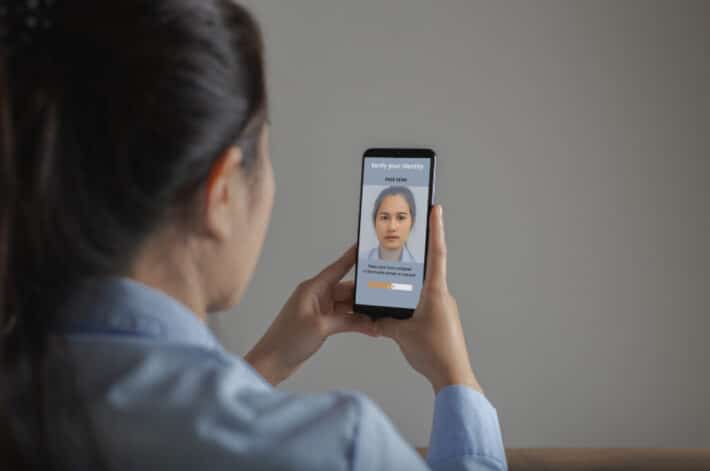Preserving Patient Trust Advancements In Healthcare Identity Verification

In the dynamic and ever-changing healthcare sector, the establishment of patient trust holds utmost importance. An integral component in upholding this trust is the accurate verification of healthcare identities. This article delves into the significance of validating patient identities, the potential consequences of overlooking this process, advancements in healthcare identity verification, and the technological advancements that are reshaping healthcare identity verification practices. Innovations ranging from biometric identification to blockchain technology and artificial intelligence are enhancing patient safety, streamlining operational efficiencies, and mitigating instances of fraud.
However, challenges such as implementation costs and privacy considerations must be carefully addressed. Looking towards the future, promising developments in healthcare identity verification include the introduction of universal patient identifiers and seamless integration with electronic health records.
We invite you to embark on this exploration of the crucial nexus between patient confidence and the advancements in sophisticated healthcare identity verification mechanisms.
The Importance of Patient Trust in Healthcare
Maintaining patient trust is a fundamental element of successful healthcare delivery. It is crucial for patients to feel secure and assured in the care they receive, establishing a relationship of trust between patients and healthcare professionals that is vital for achieving positive treatment results and overall patient contentment.
What is Healthcare Identity Verification?
Healthcare identity verification is a critical process that involves validating a patient’s identity to ensure the accuracy of medical records, reduce the risk of identity theft, and enhance the overall trustworthiness of healthcare services.
Identity proofing is a key method in healthcare identity verification, whereby patients provide documentation, such as driver’s licenses or passports, to confirm their identity. Additionally, secure authentication methods, such as biometric identification or two-factor authentication, are essential for securely verifying a patient’s identity. Unique patient identifiers play a crucial role in ensuring the accuracy of verification by assigning each patient a distinct code that facilitates secure identity management throughout their healthcare journey.
Why is Healthcare Identity Verification Necessary?
Healthcare identity verification is essential to ensure compliance with data privacy laws, protect patient information, and establish a secure system that upholds the confidentiality and security of patient data.
By implementing rigorous identity verification processes, healthcare providers can align with regulatory standards such as HIPAA and GDPR, which are specifically crafted to safeguard patient data. These verification procedures aid in thwarting unauthorized access to sensitive information, mitigating the risk of data breaches, and ensuring that only authorized personnel can access patient records.
Such practices not only cultivate trust between healthcare providers and patients but also play a pivotal role in upholding the integrity of secure transactions within the healthcare ecosystem.
What are the Risks of Not Verifying Patient Identities?
The failure to verify patient identities poses a range of risks, including heightened susceptibility to identity theft and medical identity theft, compromised data security, and potential inaccuracies in patient records that could compromise patient safety and trust.
Inadequate identity verification can facilitate financial fraud, enabling individuals to illicitly utilize another person’s identity for personal financial benefit. The absence of secure communication channels and data integrity may lead to unauthorized access to sensitive information, exposing healthcare organizations to potential data breaches. Ensuring the accuracy of patient records through reputable sources and secure data storage is imperative for safeguarding patient privacy and maintaining the integrity of healthcare data.
Advancements in Healthcare Identity Verification
Technological innovations have played a substantial role in propelling advancements in healthcare identity verification. These innovations have paved the way for the creation of more secure and efficient methods, such as biometric identification, blockchain technology, and artificial intelligence. These technologies work synergistically to bolster the accuracy and reliability of the verification process, thereby enhancing the overall efficacy of healthcare identity authentication.
Biometric Identification
Biometric identification leverages distinct biological characteristics, such as fingerprints, facial recognition, and iris scans, to provide robust and secure identity verification within healthcare environments.
These biometric technologies offer a diverse array of applications in healthcare, encompassing patient identification, access control, prescription monitoring, and secure data access. Through the adoption of biometric authentication, healthcare entities can bolster their security protocols, mitigate identity theft occurrences, and ensure that exclusively authorized personnel can access sensitive data.
The establishment of secure enrollment processes and the utilization of standardized biometric templates are pivotal in upholding the precision and uniformity of identity verification solutions in healthcare, thereby advancing patient safety and data integrity.
Blockchain Technology
Blockchain technology provides a decentralized and secure platform for the management of healthcare data, guaranteeing data integrity and facilitating secure transactions and the sharing of patient information.
A fundamental principle of blockchain technology is its capacity to establish trust and transparency in data sharing among various stakeholders within the healthcare sector. Through the application of cryptographic techniques, blockchain networks ensure that each data transaction is securely recorded and immune to tampering, thereby enhancing the overall integrity of the stored information.
The distributed ledger system inherent in blockchain technology allows for real-time updates across the network, enabling seamless and efficient verification of patient identities while upholding confidentiality. This innovative technology plays a critical role in establishing reliable systems for safeguarding health information security, ensuring that sensitive data remains shielded from unauthorized access or manipulation.
Artificial Intelligence
Artificial intelligence (AI) is transforming healthcare identity verification through the implementation of advanced algorithms and machine learning methodologies that improve the precision and effectiveness of the verification procedure.
This incorporation of AI technology allows healthcare systems to optimize their identity verification procedures, resulting in expedited and more dependable patient authentication. Through the utilization of AI-driven advancements, healthcare institutions can deploy biometric authentication techniques such as facial recognition and fingerprint scanning, thereby ensuring protected entry to confidential medical data. These developments not only bolster data security but also cultivate a heightened degree of reliability within healthcare technology, ultimately serving the interests of both patients and healthcare providers.
Benefits of Advanced Healthcare Identity Verification
Advanced healthcare identity verification provides a multitude of advantages, such as enhanced patient safety, optimized processes, and substantial decreases in fraud and identity theft. These benefits guarantee secure access to patient information and improved data integrity.
Improved Patient Safety
Enhanced patient safety stands out as a key advantage of sophisticated healthcare identity verification systems, as they offer secure mechanisms and precise verification procedures to safeguard patient data and ensure its accurate alignment with the appropriate individual.
This level of data security and controlled access to patient information plays a vital role in upholding the integrity of health records. Secure registration and authentication techniques are pivotal in restricting access solely to authorized personnel, thereby mitigating the risks associated with breaches or unauthorized use.
Through the deployment of advanced identity verification protocols, healthcare providers can adhere to regulatory standards and protect patient confidentiality. These strategies serve to strengthen overall data security within healthcare infrastructure, preserving patient privacy and enabling seamless retrieval of precise medical records.
Streamlined Processes
Enhanced healthcare identity verification processes result in increased efficiency and accuracy in managing patient identities, thereby reducing administrative complexities and improving overall operational effectiveness.
These advancements are facilitated by the adoption of cutting-edge identity verification techniques that elevate the precision of patient data and diminish the necessity for manual interventions. Secure platforms play a pivotal role in safeguarding patient information amidst digital evolution. Effective identity management systems additionally aid in streamlining processes by facilitating smooth verification and authentication procedures, ultimately reducing expenses and enhancing the quality of patient care.
Reduced Fraud and Identity Theft
Advanced healthcare identity verification plays a crucial role in mitigating the risks associated with fraud and identity theft through the deployment of robust fraud prevention mechanisms and secure access controls. This approach serves to safeguard patient information and uphold the integrity and reliability of healthcare operations.
Within the healthcare sector, it is imperative to protect sensitive patient data from unauthorized access, as the repercussions of medical identity theft can be substantial for individuals and healthcare providers alike. By leveraging advanced verification technologies and secure systems, healthcare institutions can accurately verify patient identities, reduce the likelihood of unauthorized entry into medical records, and preserve the confidentiality and authenticity of health-related information. This proactive strategy not only enhances data security but also fosters patient safety and reinforces trust in the healthcare ecosystem.
Challenges and Limitations of Advanced Healthcare Identity Verification
Despite the multitude of advantages, advanced healthcare identity verification encounters several challenges and limitations. These include elevated implementation costs, privacy apprehensions, and assorted issues associated with integration into current systems and adherence to regulatory standards.
Cost
The implementation of advanced healthcare identity verification systems comes with a substantial cost, necessitating a significant financial commitment from healthcare providers to ensure the effective and secure management of identities.
These financial considerations present challenges for healthcare organizations, particularly as they grapple with the imperative need for secure systems in the face of escalating digital threats. The investment in advanced identity verification technology is paramount in protecting patient data and upholding regulatory compliance. Through the deployment of efficient identity management solutions, healthcare providers can streamline their operations, mitigate instances of fraud, and enhance the overall patient experience.
Embracing innovations and engaging in digital transformation with regards to identity verification not only validates the initial expenditure but also results in long-term cost efficiencies and enhanced operational effectiveness.
Privacy Concerns
Privacy concerns pose a significant challenge in healthcare identity verification, particularly due to the collection and storage of sensitive patient information, which may include biometric data. It is imperative that these processes adhere to strict data privacy laws and regulatory standards.
The paramount importance of ensuring the privacy and security of patient data cannot be overstated, as it not only safeguards individuals’ sensitive information but also upholds the trust between healthcare providers and their patients. While advanced identity verification methods, such as biometric recognition and two-factor authentication, offer heightened security measures, their implementation raises valid concerns regarding potential data breaches and unauthorized access. Consequently, healthcare organizations must allocate resources towards the adoption of secure authentication technologies and robust encryption systems to fortify patient confidentiality and conform to ever-evolving data protection legislation.
Implementation Issues
Challenges often arise in the implementation of advanced healthcare identity verification due to the intricate nature of integrating new technologies with existing systems. This process necessitates meticulous planning and coordination among healthcare providers.
One of the primary obstacles encountered when deploying advanced identity verification systems in healthcare environments is the imperative need to uphold data integrity while ensuring secure access for authorized personnel. In the absence of a well-defined strategy, vulnerabilities within the system may emerge, potentially compromising patient information.
Effective collaboration among healthcare providers is paramount in addressing these challenges collectively and streamlining the implementation process. By fostering open communication and exchanging best practices, organizations can navigate integration obstacles more efficiently and uphold the security and precision of patient data.
Future of Healthcare Identity Verification
The future of healthcare identity verification holds promising developments, with potential advancements such as universal patient identifiers, seamless integration with electronic health records, and ongoing technological innovations that aim to improve verification accuracy and ensure secure access to patient information.
Potential for Universal Patient Identifiers
The introduction of universal patient identifiers in healthcare identity verification has the potential to significantly enhance the accuracy and efficiency of patient identification processes. By providing a standardized and secure method for managing patient information across a variety of healthcare systems, the implementation of such identifiers could bring about a revolutionary shift in the healthcare industry.
The presence of a unique patient identifier would greatly simplify the task of accurately matching patient records, thereby reducing the likelihood of errors and mix-ups that are often associated with disparate patient identification systems. This standardized approach holds the promise of enhancing patient safety by ensuring that each patient receives the appropriate treatment.
Furthermore, the adoption of a universal patient identifier has the capacity to promote interoperability among diverse healthcare providers, facilitating seamless access to a patient’s medical history and contributing to improved care coordination.
Integration with Electronic Health Records
The incorporation of electronic health records (EHR) plays a pivotal role in the sophisticated healthcare identity verification process, facilitating uninterrupted retrieval of patient data and augmenting data integrity across various healthcare platforms.
Through the amalgamation of identity verification mechanisms with EHR systems, healthcare providers can ensure that only authorized personnel can access sensitive patient data, thereby fortifying security measures and aligning with privacy regulations. This integration optimizes the verification procedures, mitigating the risks associated with misidentification or unauthorized entry. Consequently, this not only bolsters patient safety and confidentiality but also streamlines care delivery by furnishing healthcare providers with precise and current patient information instantaneously.
Continued Advancements in Technology
The future of healthcare identity verification will be significantly influenced by ongoing technological advancements, ushering in innovative solutions that aim to improve the security, accuracy, and efficiency of the verification process.
These technological developments are reshaping the landscape of the healthcare sector, with biometric authentication, blockchain technology, and artificial intelligence (AI) playing crucial roles.
Biometric data, such as fingerprints or facial recognition, provides a unique and secure method for verifying patient identities.
Blockchain technology contributes to the establishment of tamper-proof patient records, thereby enhancing data integrity and privacy.
AI-powered algorithms analyze extensive datasets to promptly identify potential instances of fraud or inaccuracies.
These initiatives for digital transformation not only streamline administrative functions but also protect patient information, ultimately strengthening trust in the healthcare system.
Frequently Asked Questions
What is the importance of preserving patient trust in healthcare identity verification?
Preserving patient trust is crucial in healthcare identity verification as it ensures accurate and secure identification of patients, leading to better treatment outcomes and protection of sensitive health information.
How can advancements in healthcare identity verification improve patient trust?
Advancements in healthcare identity verification, such as biometric authentication and blockchain technology, can enhance security and accuracy, building trust in the healthcare system and protecting patient data.
What are some potential risks of not properly verifying patient identities in healthcare?
If patient identities are not properly verified, it can lead to medical errors, misdiagnoses, and breaches of confidential health information, ultimately damaging patient trust in the healthcare system.
How can healthcare organizations balance the need for identity verification with patient privacy?
Healthcare organizations can implement secure and privacy-compliant identity verification methods, such as multi-factor authentication and data encryption, to ensure patient privacy is protected while also verifying patient identities.
What role does patient education play in preserving trust in healthcare identity verification?
Patient education is crucial in preserving trust in healthcare identity verification as it helps patients understand the importance of identity verification and how it protects their privacy and ensures accurate treatment.
How is the use of blockchain technology beneficial in healthcare identity verification?
Blockchain technology offers a decentralized and secure way of storing patient data, allowing for efficient and accurate identity verification without the risk of data breaches or tampering.



